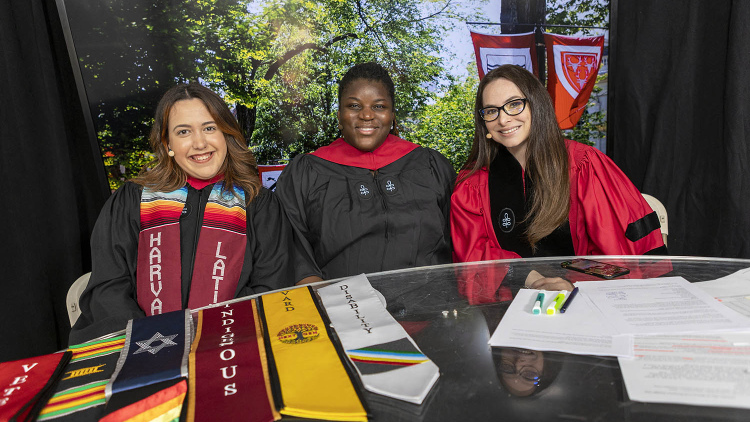Best Online Master's in Education Programs
These are the best online master's in education degree programs. Highly ranked programs have strong traditional academic foundations based on student-instructor access, graduation rates and instructor credentials. They also excel at educating distance learners while offering robust career and financial support. Read the Best Online Programs Methodology »

Here are the best online master's in education programs
Clemson university (moore), university of florida, university of virginia, university at albany--suny, san diego state university, university of north texas, arizona state university, michigan state university, university of illinois urbana-champaign.
See the full rankings
- Clear Filters
Clemson , SC
#1 in Education Programs
At Clemson University (Moore), a public institution, all of the online education classes are recorded and archived so students can access the information on their time. The application deadline for online... Read more
Gainesville , FL
#2 in Education Programs (tie)
At University of Florida, a public institution, all of the online education classes are recorded and archived so students can access the information on their time. Ninety-three percent of students are... Read more
Charlottesville , VA
At University of Virginia, a public institution, the majority of the online education classes are recorded and archived so students can access the information on their time. Seventy-one percent of students... Read more
Albany , NY
#4 in Education Programs
At University at Albany--SUNY, a public institution, the majority of the online education classes are recorded and archived so students can access the information on their time. The application deadline... Read more
San Diego , CA
#5 in Education Programs (tie)
At San Diego State University, a public institution, all of the online education classes are recorded and archived so students can access the information on their time. One hundred percent of students... Read more
Denton , TX
At University of North Texas, a public institution, all of the online education classes are recorded and archived so students can access the information on their time. One hundred percent of students are... Read more
Phoenix , AZ
#7 in Education Programs (tie)
At Arizona State University, a public institution, all of the online education classes are recorded and archived so students can access the information on their time. Ninety-two percent of students are... Read more
East Lansing , MI
At Michigan State University, a public institution, all of the online education classes are recorded and archived so students can access the information on their time. Ninety-one percent of students are... Read more
Champaign , IL
University of Illinois Urbana-Champaign is a public institution. Eighty-nine percent of students are already employed when they first enroll, and University of Illinois Urbana-Champaign does not require... Read more
Auburn University
Auburn , AL
#10 in Education Programs (tie)
At Auburn University, a public institution, all of the online education classes are recorded and archived so students can access the information on their time. The application deadline for online education... Read more
University of Wisconsin--Madison
Madison , WI
At University of Wisconsin--Madison, a public institution, the majority of the online education classes are recorded and archived so students can access the information on their time. Forty-six percent... Read more
Kansas State University
Manhattan , KS
#12 in Education Programs (tie)
At Kansas State University, a public institution, all of the online education classes are recorded and archived so students can access the information on their time. Twenty-five percent of students are... Read more
Texas A&M University--College Station
College Station , TX
At Texas A&M University--College Station, a public institution, all of the online education classes are recorded and archived so students can access the information on their time. Eighty-nine percent of... Read more
University of Massachusetts--Lowell
Lowell , MA
At University of Massachusetts--Lowell, a public institution, all of the online education classes are recorded and archived so students can access the information on their time. The application deadline... Read more
Montclair State University (College for Education and Engaged Learning)
Montclair , NJ
#15 in Education Programs (tie)
At Montclair State University (College for Education and Engaged Learning), a public institution, all of the online education classes are recorded and archived so students can access the information on... Read more
Purdue University--Main Campus
West Lafayette , IN
At Purdue University--Main Campus, a public institution, all of the online education classes are recorded and archived so students can access the information on their time. The application deadline for... Read more
University of Georgia
Athens , GA
At University of Georgia, a public institution, all of the online education classes are recorded and archived so students can access the information on their time. Eighty-eight percent of students are... Read more
University of Houston
Houston , TX
At University of Houston, a public institution, the majority of the online education classes are recorded and archived so students can access the information on their time. Seventy-nine percent of students... Read more
Pennsylvania State University--World Campus
University Park , PA
#19 in Education Programs (tie)
At Pennsylvania State University--World Campus, a public institution, all of the online education classes are recorded and archived so students can access the information on their time. Ninety-six percent... Read more
The University of Alabama
Tuscaloosa , AL
At The University of Alabama, a public institution, the majority of the online education classes are recorded and archived so students can access the information on their time. The application deadline... Read more
Graduate School
UH Graduate School
Virtual Information Session
Would you like to learn more about what programs are offered at the University of Houston Graduate School?
Register now for a UH Graduate School Information Session!
The University of Houston Graduate School hosts virtual information sessions for prospective students. Our information sessions are similar to an open house, where you participate in the following:
- Presentation on what future students need to know about our admission requirements, admission deadlines, financial aid, degree requirements, student life in our college, etc.
- Connect and Interact with our college’s program managers and advisors – who can connect you with the program you are interested in!
- Open Q & A session
These sessions will be held virtually through zoom. Once you sign up you will be sent a zoom invitation to attend the Information Session.
The Spring Virtual Informational Sessions are scheduled on the dates below:
- December 3rd at 1:00pm
December 10th at 1pm
December 17th at 1pm
All the times listed above are Central Standard Time.
Registration/RSVP Link:
Attend a Session
Graduate Programs
Tuition & Fees
Financial Aid & Scholarships
Why the university of houston graduate school.
The University of Houston was founded in 1927 and is now one of the largest schools in the state of Texas. The Graduate School oversees over 6,000 students in a broad spectrum of programs, including master’s, doctoral, advanced certificate, professional, and joint degree programs.
The University of Houston aims to actively recruit a diverse student population and challenge our scholars to develop new ideas and technology through hands-on application and mentoring under experienced professors who will become an integral part of your professional preparation. Our goal is to maintain our position at the forefront of research, innovation, and scholarship by providing opportunities for intellectual growth. Students at The University of Houston Graduate School experience unparalleled professional development opportunities, program flexibility, and academic support.
Explore your future college below.
- Architecture & Design
- Engineering
- Hotel & Restaurant Management
- Liberal Arts & Social Sciences
- Natural Sciences & Mathematics
- Public Affairs
- Social Work
Our Mission
Across over 150 graduate and professional programs, the University of Houston provides superior educational opportunities to its students at all levels of education. The mission of the Graduate School is to promote excellence in education by enabling graduate and professional students to research, study, and prepare professionally in an environment that fosters the growth of ideas and the spread of information. The University of Houston is committed to promoting diversity in both the culture of our student population and in the influx of knowledge we advocate as an institution.
We continuously seek to create real-world applicable skills and aid our students in personal growth and development, while maintaining the highest level of academia. Our focus is you, and our goal is to provide you with an education you can be proud of.
- Top 50 Programs in US News & World Report
- 150+ Master's, doctoral and professional degrees
- Top 15 Ranked Online Graduate Education Program
- 15 Fully Online Masters Programs
Let's get social!
Online Master's in Education

Contact Information
Connect with program staff.
If you have program-specific questions, please contact OEL Associate Director Nicole Barone .
Additional Information
- Download the Master's Viewbook
- Admissions & Aid
Today’s education landscape needs leaders like you — dynamic educators and innovators committed to making sustainable and scalable change for all students by building on your professional experience in PreK–12 classrooms and districts; on college and university campuses; or in philanthropies, nonprofits, policy organizations, and ed-tech initiatives.
That’s why the Harvard Graduate School of Education launched an online Master's in Education Leadership, a two-year, part-time Ed.M. program with Higher Education and PreK-12 pathways specifically designed for mid-career working education professionals. The program will strengthen the invaluable skills you’ve already developed and give you the tools to propel yourself to new leadership opportunities and to even greater impact.
A New Option for Experienced Educators
The online Master's in Education Leadership from HGSE consists of a diverse cohort of professionals like you — leaders who are advancing in their careers, and who bring important perspectives grounded in real-world challenges. Our program is conducted almost exclusively online — except for one short on-campus experience, where you'll meet your cohort in person and build community prior to the start of the first fall semester.
The program offers a distinctive Harvard experience — including deep engagement and interaction with Harvard faculty and talented peers, as well as a lifelong professional network — within an intentionally designed curriculum and robust opportunities for mentorship and coaching. The program is career-embedded — so you can immediately apply what you are learning, in real time, to the work you are doing on the ground.
Two Pathways: Higher Education and PreK–12
In the online Master’s in Education Leadership, you will choose between two Professional Pathways — Higher Education or PreK–12 — that align with the area of practice or the student community in which your work will make an impact. Students interested in advancing into senior leadership roles in colleges and universities, or in organizations that impact higher education, should study in the Higher Education Pathway . Students who want to do change-making work within the education ecosystem on behalf of students from early childhood to secondary education levels should select the PreK–12 Pathway .
Our prescribed curriculum is intentionally designed to meet your professional needs. It is anchored in both foundational knowledge and core competencies in education leadership related to the U.S. education system. You will also complete pathway-specific courses to advance your leadership in higher education or preK–12 education, as well as the Foundations courses. You will also have the opportunity to select courses from a small subset of electives. A minimum of 42 credits are required to graduate with an Ed.M. degree from HGSE.
The main elements of this academic year curriculum are:
Foundations Courses
Throughout the two-year program, you will participate in Foundations courses in four areas: How People Learn, Leading Change, Evidence, and Equity and Opportunity. Through the Foundations, you’ll build core skills central to the profession of education.
- The online Ed.M. program commences with How People Learn, which runs online June–July and requires a time commitment of 12–15 hours per week.
- Additional Foundations learning goals and experiences tied to Leading Change will be incorporated into other required courses during your two-year program.
Professional Pathways
All students will choose between the Higher Education and PreK–12 Pathways. Throughout the program, you will take both cross-pathway courses and pathway-specific courses. Cross-pathway courses will allow you to develop leadership skills that are important across sectors, as well as have discussions about how higher education and preK–12 can work more effectively together. Cross-pathway courses include:
- Negotiation Workshop
- Real Talk: The Art and Practice of Brave Communication
- Strategic Finance for Nonprofit Leaders
Pathway-specific courses are directed to the knowledge and skills important for leadership in the Pathway professional setting.
Elective Coursework
Students will have the opportunity to choose from a curated list of electives during the optional January terms, and during the fall and spring of their second year. Sample elective courses:
- Coaching for Equity
- College Admissions and Strategic Enrollment Management
- Leading a School through Challenge and Crisis
- Inclusion Through Learning, Teaching, and Leadership
- Why Can’t Higher Education Change?
- Writing Workshop
Note: Though some courses may include comparative and international examples, applicants should expect a focus on leadership within U.S. domestic educational institutions and systems.
Leadership Core Competencies
To help you manage, lead, and implement change in complex organizations, our curriculum explores the core leadership competencies that you'll need to elevate your skills, knowledge, and expertise, wherever you are in your career. Throughout your coursework, you will strengthen your ability to:
- Lead change and think strategically
- Foster productive organizational conditions
- Navigate politics and practice political inclusion
- Communicate effectively
- Cultivate self-development and team professional development skills
Higher Education Pathway
All students will choose between the Higher Education and PreK–12 Pathways. The Higher Education Pathway is designed for education professionals who bring at least five years of relevant or transferrable work experience. It prepares you to be a dynamic leader in a diverse range of postsecondary education contexts and will increase your knowledge of the practices, policies, processes, challenges, and opportunities in American postsecondary education. You will enhance your repertoire of strategies and management skills for tackling critical issues and introducing change — while preparing you to advance in your current career or move into other important leadership roles in higher education.
Sample courses for the Higher Education Pathway:
- Creating the Future of American Postsecondary Education
- Higher Education Leadership & Governance
- Help Students Thrive to Student Development in Context: Promoting Success and Well-being in Higher Education
You will also have the opportunity to engage with accomplished leaders through HGSE’s unique President-in-Residence program.
Students interested in the Higher Education Pathway currently hold administrative and mid-level leadership roles:
- Colleges and universities, including in academic affairs, student affairs, admissions and enrollment management, advancement, and institutional research
- Nonprofit education organizations
- State and federal government agencies
- Policy organizations focused on higher education
PreK–12 Pathway
All students will choose between the Higher Education and PreK–12 Pathways. The PreK–12 Pathway is designed for education professionals who bring at least seven years of relevant or transferrable work experience. It equips you to advance your leadership across the preK–12 landscape, including in such positions as teacher leader, principal, afterschool director, education agency representative, education nonprofit/philanthropic leader, or education entrepreneur.
Sample courses for the PreK–12 Pathway:
- Strategic Leadership in the PreK–12 Ecosystem
- Creating Conditions for Effective School, Family, and Community Partnerships
- Leading Learning
Students interested in the PreK-12 Pathway currently hold administrative and mid-level leadership roles in:
- PreK–12 schools, including as principals, assistant principals, and department heads
- Nonprofit education organizations (I.e., foundations, advocacy organizations, technical assistant organizations).
- Policy organizations focused on preK–12 education
Projected Time Commitment
Courses combine synchronous meetings and asynchronous work and assignments. Live or synchronous aspects of required courses will occur on weekdays (Monday–Friday) between 6 and 9 p.m. ET . Some elective courses, outside the required curriculum, may be offered at alternative times. On average, this degree requires 14 to 20 hours of work per week, though the weekly commitment will vary by term, courses taken, and students' own work styles. Students can expect to spend approximately five to seven hours per week in synchronous online class sessions with faculty members and classmates. The remaining hours will be spent working independently on asynchronous class preparation, in self-scheduled small-group work with other students or working on assignments.
Weekly Time Estimate
To complete the online Ed.M. in Education Leadership, students must complete 42 total credit hours of coursework over the two-year program. While the weekly time commitment varies, the graphic below provides a snapshot of the estimated weekly time commitment students may experience during the fall and spring semesters, when they will typically take 8 credits, the equivalent of two courses .
Synchronous
Includes live, scheduled sessions with faculty members and other students.
Asynchronous
Self-paced activities, discussion posts, and other course-related work.
Assignments
Readings, projects, papers, research, etc.

Total Estimated Weekly Hours
Hours reflect estimates and vary by term, course, and student work style.
Occurs between Monday-Friday, according to a specific schedule.
Asynchronous work and assignments will have clear deadlines or milestones, but students can set their own schedules to complete this work. Note that there may be days or weeks during the semester that are busier than average, requiring more than the estimated time shown.
Program Faculty
Students will work closely with faculty associated with their area of study, but students can also work with and take courses with faculty throughout HGSE and Harvard. View our faculty directory for a full list of HGSE faculty.
Faculty Co-Chairs

Francesca Purcell
Francesca Purcell is a specialist in higher education policy and practice, with expertise on topics including college completion, student transfer, and developmental education.

Irvin Leon Scott
A former teacher, principal, assistant superintendent, chief academic officer, and foundation leader, Irvin Scott's focus is on education leadership and faith-based education.
Liya Escalera

James P. Honan

Karen L. Mapp

Timothy Patrick McCarthy

Mary Grassa O'Neill

Alexis Redding

On-Campus Experience
Prior to kicking off your first fall semester, you will participate in the On-Campus Institute, an immersive experience on the HGSE campus in Cambridge. This will provide the opportunity to not only form deep relationships with your cohort, but also learn together with the faculty and advisers with whom you will spend two years. The immersive residential experience is a core component to the two-year degree program that is required of all students in the program.
Over several days in late July and/or early August, you and your fellow peers will discuss your professional experiences and examine some of the persistent challenges in your organizations. You will immerse yourself in rich exercises and community building, set expectations of what it means to be in a rigorous HGSE degree program, and set intentions for yourself, your cohort, and your course of study.
Career Pathways
The Master's in Education Leadership Program prepares you to advance to a senior leadership role in a variety of career pathways, including:
- Academic affairs
- Admissions and financial aid
- Development
- Diversity, equity, and inclusion
- Institutional research
- Student affairs
PreK-12 Pathway
- Education entrepreneur
- Executive director for an education nonprofit
- Principal* or head of school
- Program officer for a foundation
- School department head
- School designer and developer
- School district or network leader
- Teacher leader
Overall Program
- Education nonprofit CEO/COO
- Educational advocate and organizer
- Entrepreneur
*Note: This program is not able to provide principal certification at this time.
Applications Are Now Open
The deadline to apply is January 5, 2025.
Program Highlights
Explore examples of the Online Master's in Education experience and the impact its community is making on the field:

Stories from OEL
The unique format of the Online Master’s in Education Program allows students to put lessons learned at HGSE into action — in real time

Redding, HGSE Online Master’s Students to Headline Harvard Commencement Broadcast
Harvard-wide Commencement ceremony will feature Lecturer Alexis Redding, HGSE alumni, graduates of the Online Master's in Education during the May 23 broadcast
A Guide to Master’s Degrees in Education and Teaching
BestColleges.com is committed to delivering content that is objective and actionable. To that end, we have built a network of industry professionals across higher education to review our content and ensure we are providing the most helpful information to our readers.
Drawing on their firsthand industry expertise, our Integrity Network members serve as an additional step in our editing process, helping us confirm our content is accurate and up to date. These contributors:
- Suggest changes to inaccurate or misleading information.
- Provide specific, corrective feedback.
- Identify critical information that writers may have missed.
Integrity Network members typically work full time in their industry profession and review content for BestColleges.com as a side project. All Integrity Network members are paid members of the Red Ventures Education Integrity Network.
Explore our full list of Integrity Network members.
If you want to advance your education career , a master’s in education is a great way to achieve your professional goals. You’d join a rising trend.
More public school teachers in 2020-2021 held master’s degrees than in 2011-2012, according to the National Center for Education Statistics (NCES).
We’ll walk you through everything you need to know about pursuing a master’s of education online.
What Is a Master’s in Education Degree?
A master’s in education degree provides a broader learning experience than a master’s in teaching, which focuses on classroom management.
A master’s in education online program is ideal if you want a career in educational administration , policy, research, and curriculum development. You can still work in the classroom with the degree too.
This degree can help you advance your education career and qualify for leadership roles as a principal or educational administrator. A master’s degree in education will be especially beneficial if you want to choose a concentration or specialization such as instructional design and curriculum development.
Featured Online Master’s in Education Programs
Learn about start dates, transferring credits, availability of financial aid, and more by contacting the universities below.
Master’s in Education Degree Courses and Concentrations
In a master of education program, whether online or in-person , you’ll learn how to sharpen your skills as an educator to either make a bigger impact on your students’ lives or to transition into a leadership position, earning more responsibilities and a pay bump.
As you research programs, you may come across some common specializations, such as curriculum and instruction, educational leadership , educational technology, literacy and digital learning, and school counseling, among many others.
- Early Childhood Education: Early childhood education programs focus on how to educate young children from infancy to age eight. Graduates can pursue many roles, including as preschool directors, early education curriculum developers, and classroom teachers.
- Elementary Education: Prepares you to work with students at the K-8 level. You’ll study classroom management, learning design, and inclusive teaching methods to create optimized learning environments.
- Secondary Education: Secondary education programs focus on the skills and knowledge necessary to promote education from grades 6-12. Students can choose a preferred content subject, including math, science, or social studies.
- Higher Education: Topics include higher education finance, college student health, and public policy in higher education. Careers for graduates include community college president, resident director, or policy analyst.
- Special Education: Coursework includes instruction on behavior management, goal and objective writing, and data interpretation. Graduates can work as special education teachers, resource room teachers, and individualized case managers.
- English Language Learning (ELL): Students learn teaching techniques and strategies to help English language learners succeed. Graduates often become ELL teachers in K-12 or adult education settings.
- Educational Administration: You’ll study standards-based systems theory, data analysis for decision-making, and how to manage resources. Graduates can utilize their skills in school principal, dean, or athletic director roles.
- Curriculum and Instruction: Students often specialize in a specific area, like secondary language arts or elementary education. You’ll learn how to evaluate different learning materials, create meaningful assessments, and interpret data.
- Music Education: You’ll learn both musical theory and music teaching strategies. Classes cover musical analytic techniques, how to develop musical educational materials, and how to utilize music technology in classrooms.
- School Counseling: Coursework for this specialization covers group counseling, crisis counseling, and ethical practices. Graduates may consider pursuing further education in school psychology or counselor education.
How Much Does a Master’s Degree Cost?
The average cost of tuition in the 2022-2023 academic year was $9,834 at public institutions and $40,713 at private institutions, according to the National Center for Education Statistics (NCES).
The University of Cincinnati’s online master of education in curriculum and instruction program costs $662 per credit or $6,612 per semester. Fordham University , a private institution, charges $38,701 per semester for its online master’s in education program.
At the University of Tennessee , you’d pay $744 per credit hour if you’re an in-state student or $819 per credit hour if you’re not a Tennessee resident . You’ll have to earn 30-38 credits to graduate from their online master’s in education program.
What Can I Do With a Master’s in Education?
A master’s in education or teaching can lead to many in-demand education careers , including K-12 teacher, school principal, administrator, curriculum consultant, and other leadership positions.
And here’s more good news: Your degree opens the door to jobs outside the education setting , too.
“Of course a master’s degree in education can lead to opportunities in an educational setting. However, students tend to underestimate how the degree can support a career in other industries and career paths, like EdTech, learning and development, human resources, [and] project management.”

— Dr. Emmanuela Stanislaus , Instructor, Florida International University’s MS in Higher Education Administration Program
Here are popular teaching and non-teaching jobs for master’s in education graduates, including how much they pay and how much they’re expected to grow over the next decade:
Do Online Master’s in Education Programs Lead to Licensure?
A teaching license or certification provides people the authority to teach legally. Teachers and principals need licenses to work in P-12 public schools. State governments issue licenses if you meet predetermined criteria, such as having a degree, completing field experiences, and passing a state exam. Specific requirements vary by state and by the type of license, certification, or endorsement.
An online master’s in education can be a pathway to licensure if the program is approved by the state. Online programs that lead to an initial teaching license typically include an in-person student-teaching component. If you already have a teaching license, you can apply to master’s programs that lead to add-on endorsements or other certifications, such as an administrator license.
Non-licensure M.Ed. programs are typically designed for students who already hold a teaching credential or who plan to work in settings that do not require a license, such as private schools. These online programs often don’t have any field requirements.
Learn How to Become a Teacher in Your State
- Connecticut
- Massachusetts
- Mississippi
- New Hampshire
- North Carolina
- North Dakota
- Pennsylvania
- Rhode Island
- South Carolina
- South Dakota
- West Virginia
What to Consider Before Choosing a Master’s in Education Program
You may have some concerns regarding costs, program length, and maybe even the program format. Below, you’ll find details about these common concerns.
Tuition costs can affect your life long after college, so consider how much your online master’s in education program costs before you enroll. Keep in mind that you can offset some of the costs by applying for grants and scholarships and by pursuing in-state and accelerated programs .
Compare the total cost of your degree with the amount of money you hope to make after you graduate to determine the rate of investment (ROI) of your desired program.
Program Length
Master’s programs in education require one to three years of study. The longer you stay in school, the longer you delay your ability to start a career.
Although the amount of time you spend earning your master’s degree will depend on whether you study part time or full time , whether you pursue an accelerated program , and how many credits you need to get to earn your degree.
Accreditation
If a school or program is accredited, this means they’ve been verified by an accreditation agency as an institution that provides rigorous, high-quality education.
There are two types of accreditation . Institutional accreditation means the entire college or university has been accredited, while programmatic accreditation means the program has been accredited.
Program Format
Choosing the right format for your learning style and lifestyle can set you up for academic success. Consider whether you want to directly interact with your instructors and classmates in a classroom environment. If so, an in-person program would suit you.
If you need the flexibility to study anywhere at any time through asynchronous coursework, you may be comfortable in an online program .
A hybrid program will give you the direct contact of an in-person program with the flexibility of an online program.
Is an Education Master’s Degree Worth It? Grads and Instructors Weigh In
The graduates and instructors we spoke to agreed that a master’s in education leads to better opportunities, better pay, and greater impact — though you need to be mindful of the reasons why you want it.
They also say the degree helped them reach specific career goals, which varied depending on their values.
What Grads Are Saying
“A master’s in education gives a teacher a far wider perspective on how the system works and how students learn. A graduate with a master’s in education becomes a problem-solver who can zoom in and out of a problem, seeing it at both micro and macro levels.”

— Mindy Kay Smith , M.Ed., Ohio University
“[A master’s in education] has served me well. … I’m a more creative problem-solver, a more empathetic product builder, and a stronger collaborator because I have spent time deeply understanding the problems and people in my industry.”

— Lisa Jiang , MA in Education, Stanford University
“My master’s degrees helped me get more leadership positions in education and helped me attain committee roles with the Ohio Department of Education and the U.S. Department of Education. In addition, I am able to provide professional development at the collegiate level because of my two graduate degrees.”

— Charesha Barrett , M.Ed., Cleveland State University
What Instructors and Administrators Are Saying
“I think that it is worth it to pursue a master’s in education. Having said that, I think that it is important for students to be strategic if and when they decide to pursue it. Go through the exercise of asking yourself why you want to pursue the degree. What opportunities will a master’s degree open up for you, and will it be enough to support your lifestyle?”
“I consider a bachelor’s degree to be like an appetizer when it comes to education. You just get a little taste and you don’t have the full understanding of what it means to be an educator. After being in the classroom, having exposure to systems and structures, individuals pursuing a master’s degree begin to ask better questions, challenge inequitable practices, and gain confidence in using their voice to advocate for research-based approaches to supporting students and programs.”

— Dr. Kasey Johnson , Lead Faculty, Ottawa University School of Education
“Earning a master’s degree in education will help graduates be a part of a group of professionals who have the credentials, licensures, and industry-relevant skills and knowledge that current employers seek.”

— Dr. Stacey Ludwig Johnson , Senior VP and Executive Dean of the School of Education, Western Governors University
Discover the Best Master’s in Education Programs
Explore more college resources.

Considering a Master’s in Education? Follow These 5 Steps Before Choosing a Program
Considering a master’s in education? Follow these five steps to choose the right program for your career goals, whether online or in person.

by Margaret Weinhold
Updated April 10, 2024

Scholarships for Education Majors
For those looking to become teachers, financing your degree can be a challenge. Learn what scholarships are available for education majors.

by Ellery Weil, Ph.D.
Updated April 19, 2024

The Student’s Guide to Financial Aid and the FAFSA
What is financial aid? What is the FAFSA? Learn about the different types of aid you can get for college and how to fill out the FAFSA.

by Matthew Arrojas
Updated August 26, 2024

IMAGES